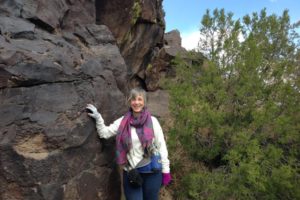Understanding the Various Kinds of Spiritual Seekers
By Sensei Erwin L. Rimban
INTRODUCTION
 The Wisdom Quest exists in infinity of themes, varieties, settings and environments. Souls are attempting to reach a more advanced state of consciousness through a combination of hard work, effort, talent, skill, serendipity and grace. Soul categories can be understood more comprehensively to fall into three major categories: Primordial Narratives, represented by Primary Seekers; Sociopoetic Narratives, represented by Secondary Seekers and Existential Narratives, represented by Tertiary Seekers. The purpose of this study is to explicate the various soul categories in relation to the different classes of spiritual Seekers. In so doing, it sheds light on the Phenomenology of the Wisdom Quest and illuminate the various challenges faced by evolving soul classes.
The Wisdom Quest exists in infinity of themes, varieties, settings and environments. Souls are attempting to reach a more advanced state of consciousness through a combination of hard work, effort, talent, skill, serendipity and grace. Soul categories can be understood more comprehensively to fall into three major categories: Primordial Narratives, represented by Primary Seekers; Sociopoetic Narratives, represented by Secondary Seekers and Existential Narratives, represented by Tertiary Seekers. The purpose of this study is to explicate the various soul categories in relation to the different classes of spiritual Seekers. In so doing, it sheds light on the Phenomenology of the Wisdom Quest and illuminate the various challenges faced by evolving soul classes.
PRIMORDIAL NARRATIVES: ALCHEMY OF THE PRIMARY QUEST
The primary seeker is the novice. This is the seeker who seeks refuge in a structured spiritual learning environment for the purposes of spiritual learning. The most common form of structured spiritual learning is the religious system. The religions are dogmatic institutions where spiritual learning is conveyed in a digestible form to a community of adherents. Typically, the mystical insights, which are the basis for Truth, are downplayed in religious systems because they serve little purpose. The primary mode of control in a religious system is to keep the adherents in line and always looking to the absolute external control of the reigning priesthood for interpretation of mystical insights. Because mystical insights are hard to teach to a flock of elementary learners without the exceptional methodology of personal questing, the spiritual lessons are delivered by the religions in the form of ethical lessons mostly. The basic food of the primary seeker is always the digestion of sacred books, and memorization of its passages, with or without external application. He or she sometimes does not make the distinction between the language of “sacred law” and its intent. Conformity is his goal.
Primordial narratives would roughly correspond to the lower two levels in the Hierarchy of Needs by noted psychologist Abraham Maslow. These are the physiological needs and the safety and security needs. Primordial Narratives are lives where the soul is caught up in various survival loops. Lives of desperation. Lives of poverty. Lives of misery, and famine, and tragedy and death. The reason the soul chooses these lives revolve around the fact that the Higher Soul allows its fractal souls to experience all sorts of lives. Primordial narratives are the most challenging lives in this respect. The fractal souls are challenged again and again to participate in environments of extreme stress and press. Some examples would suffice. A soldier graduates at the top of his class at a military academy. He then enters professional military service to help his poor family. He goes to the fields and perishes at his first assignment. The family returns to the poverty loop starting line. A young woman and her family experiences the tragedy of a devastating typhoon. Their whole domicile is obliterated. She is forced to sell herself in order for her family to survive. Immigrants cram in a boat, they travel the sea to reach a promised land. They never arrive as the boat capsizes in the sea. These are simple illustrations of Primordial Narratives.
In this planet, the Dark Polarity and its malevolent hierarchies have long used religion as a tool to control the masses.
 But the ethical lessons must be wrapped in the outer layer of dogmatic control, otherwise the elementary seekers will be awakened to the nature of the game, and leave the religious environments altogether, which is bad for the profit-making schemes of these religions. Outer dogma and external control are the two warps which encapsulate the ethical teachings within. Normally, the primary seekers do not question this, since programming insures that they are held in the tight grip of the religious system. The primary seekers compose the main section of current Earth population. They are loyal to their respective religious families, and will be hard to awaken, even in the presence of apocalyptic environments. They are dogmatic, stubborn, and resistant to change. They are also very faithful to the collective of which they are a part. If you will debate with a primary seeker, you are wasting your time, because he/she will cling to the dogmatic beliefs which have been his/her heritage in the religious family of context. So, what is the purpose of immersion in this kind of environment? The primary seekers are learning to live within the stifling confines of the herd mind. They are learning obedience, control, power, and subterfuge. They are learning the dark side of external manipulation. They are learning the experiential extremes of the sequential universe. Many eons pass before the primary seekers are able to free themselves from the external locus of control that is imposed by the herd mind. The impetus of freedom and independence shall come from the Higher Self. Until such time, the primary seekers are imprisoned in a dark cave of their own choosing. Do not debate with a primary seeker; do not attempt to enlighten him/her. The primary seeker will grow, in time. The primary seeker is not prepared for the glories of mysticism.
But the ethical lessons must be wrapped in the outer layer of dogmatic control, otherwise the elementary seekers will be awakened to the nature of the game, and leave the religious environments altogether, which is bad for the profit-making schemes of these religions. Outer dogma and external control are the two warps which encapsulate the ethical teachings within. Normally, the primary seekers do not question this, since programming insures that they are held in the tight grip of the religious system. The primary seekers compose the main section of current Earth population. They are loyal to their respective religious families, and will be hard to awaken, even in the presence of apocalyptic environments. They are dogmatic, stubborn, and resistant to change. They are also very faithful to the collective of which they are a part. If you will debate with a primary seeker, you are wasting your time, because he/she will cling to the dogmatic beliefs which have been his/her heritage in the religious family of context. So, what is the purpose of immersion in this kind of environment? The primary seekers are learning to live within the stifling confines of the herd mind. They are learning obedience, control, power, and subterfuge. They are learning the dark side of external manipulation. They are learning the experiential extremes of the sequential universe. Many eons pass before the primary seekers are able to free themselves from the external locus of control that is imposed by the herd mind. The impetus of freedom and independence shall come from the Higher Self. Until such time, the primary seekers are imprisoned in a dark cave of their own choosing. Do not debate with a primary seeker; do not attempt to enlighten him/her. The primary seeker will grow, in time. The primary seeker is not prepared for the glories of mysticism.
SOCIOPOETIC NARRATIVES: ALCHEMY OF THE SECONDARY QUEST
Sociopoetic narratives are lives where the soul grapples with various problems of a sociological nature. These are lives where the fractal soul participates in families, groups, communities. He or she learns how to live in symbiosis with other people. In Wayne Dyer’s philosophy, these narratives would correspond with the interpersonal phase. The human being is learning to participate and thrive in a sociological system, which is itself situated in a particular historical epoch. The soul then learns to absorb these challenges into his system. He values conformity and obedience to various systems of authority. Systems of authority would be represented by family, clan, community, nation-state, religious, philosophical systems as well as various support groups, like peer groups and the like.
The secondary seeker is the journeyman. This is the seeker who begins to question his native upbringings, and starts to defy his original religious family and contextual heritage. This is the seeker who begins to contemplate the fundamental metaphysical questions: Who am I? Why am I here? Where am I going? In the pursuit of Truth, the secondary seeker will cross boundaries every now and then, and seek Truth in many places like the sciences, the religions, the philosophical systems and even various occult and spiritual systems. He/she is often not content with one, and may live in many “worlds” at once; filling his cup with the wisdom he can partake and digest from each sphere. He will try to come up with an amalgamation of teachings from various sources, and sometimes may delude himself and think it is “his own personal system” when in fact it is just a conglomeration from various disparate streams.
 The measure of learning competence from a secondary seeker will depend on the tenacity of his spiritual foundation as well as his ability to absorb higher level mystical insights. Contrary to the prognostications of various so-called “enlightened persons”, the sciences are the keys to mysticism. For is not science the lower order expression of high mysticism? And is mysticism not the highest-level expression of the sciences? Thus, it is incumbent on the secondary seeker to acquaint himself with the sciences as much as possible. For the sciences form the background of the quest. The methodologies of research inherent and embedded in the sciences serve as a springboard to model the mind to search accurately for the patterns and clues that form together into a gigantic puzzle called the game of life. And this puzzle needs to be unlocked in a mystical journey that shall captivate and ensnare and tantalize the secondary seeker.
The measure of learning competence from a secondary seeker will depend on the tenacity of his spiritual foundation as well as his ability to absorb higher level mystical insights. Contrary to the prognostications of various so-called “enlightened persons”, the sciences are the keys to mysticism. For is not science the lower order expression of high mysticism? And is mysticism not the highest-level expression of the sciences? Thus, it is incumbent on the secondary seeker to acquaint himself with the sciences as much as possible. For the sciences form the background of the quest. The methodologies of research inherent and embedded in the sciences serve as a springboard to model the mind to search accurately for the patterns and clues that form together into a gigantic puzzle called the game of life. And this puzzle needs to be unlocked in a mystical journey that shall captivate and ensnare and tantalize the secondary seeker.
Do not judge the secondary seeker’s propensity for flirtation. The secondary seeker will jump from ship to ship, from system to system, to absorb all the jewels that various spheres can bestow on him. It is the nature of the secondary phase to travel from world to world as much as possible. The secondary seeker will be wild-eyed and enchanted from his various travels and will have no time to consider the comfort of other travelers. He is absorbed in his quest, in his own search for Truth and will be apt to ignore other consciousness forms. Their only value will be to provide him with more stimulation. Here we can see that the communication faculties of the secondary seeker need to be highly developed in order to explore and access many realms of thought. The particular language where the secondary seeker excels shall be a dialogue between his Deep Self and his fractal self. It is a norm that the secondary seeker develops his facility for various kinds of languages at an early age to facilitate and catalyze his thematic break from his native upbringing and original religious and philosophical orientations. The degree of language facility is directly proportional to the degree of fractal soul adventure. When I say language, I mean the various linguistic, mathematical, metaphysical, symbolic and esoteric languages.
Indeed, the greatest weakness of the secondary seeker is to mistakenly identify the quest paradigms with the summit of the mountain itself. This is obviously a subtle error. The road is only a map, and should not be exchanged with the destination itself. And yet, many secondary seekers make this mistake. Thankfully, the eternal paradigm of the cosmos supplies the ever-ready answer, which is the presence of inherent polarities in the planes of matter that will challenge the assumptions of the secondary seeker from time to time. The presence of the polarities shall be the impetus for the necessary change that will “awaken” the secondary seeker every now and then. Variety indeed shall be the spice of his life. These consciousness jolts take the form of personal crises that drive the suffering soul to continue on in his quest for the true summit of the mountain. Complacency is also another weakness. The secondary seeker may become weary from time to time. To counter this, his Higher Self will predetermine the occurrence of inspirational themes which shall provide essential soul nourishment in times of spiritual starvation.
By all means, debate with a secondary seeker. His soul needs these mental challenges from time to time. But be aware that the secondary seeker does not possess the experience of Truth yet. His system is “undergoing development” and will be raw as compared to the wisdom of a master. The secondary seeker understands some fragments of the game, and will in fact, attempt some preliminary syntheses from time to time. Yet, these gleanings of the tree of life are still far from the supreme synthesis of the cosmic ensemble and will only serve to reflect the distance of the seeker from the summit of the mountain. Be patient with him.
One day, the secondary seeker shall discover meditation and mysticism. At this juncture, his soul will begin to be awakened to the supreme synthesis. Rejoice for that day.
EXISTENTIAL NARRATIVES: ALCHEMY OF THE TERTIARY QUEST
The tertiary seeker is the adept or master. This is the soul phase which has experienced all the houses of the zodiac in their manifold beauty. This is the culmination of the journeyman. This is the stage where the soul can learn using various methodologies. This is the supreme learner, adept at configuring his environment to suit his learning needs. This is the supreme hermit, who can easily spot and disdain the puerile games of sterile materialism and leave them. This is the supreme artist, who can paint beautiful echoes of a humble life, and be an inspiring presence in his environment. This is the spiritual warrior, who can apprehend the subtleties of both the white and the black aspects of nature, and navigate a balance in his personal life.
 One of the indications of mastery is the understanding of the difference between the nonlinear thought processing and sequential thought processing. This mega paradigm is the basis for the cosmos itself. It explains the presence of two spiritual curriculum systems that soul collectives and consciousness singularities can choose. The comprehension of the nonlinear world, the true state of the cosmos, distinguishes the master from the mere sorcerer. For the nonlinear thought process is the hallmark of the highest realms. Only a traveler who has experienced and understood this realm in its true glory can teach this supreme synthesis to other learning souls.
One of the indications of mastery is the understanding of the difference between the nonlinear thought processing and sequential thought processing. This mega paradigm is the basis for the cosmos itself. It explains the presence of two spiritual curriculum systems that soul collectives and consciousness singularities can choose. The comprehension of the nonlinear world, the true state of the cosmos, distinguishes the master from the mere sorcerer. For the nonlinear thought process is the hallmark of the highest realms. Only a traveler who has experienced and understood this realm in its true glory can teach this supreme synthesis to other learning souls.
The master has the privilege to teach others. He knows the supreme synthesis and has the right to train others to reach the summit of the mountain in their own way. However, it is not necessary to teach continuously and the master has the option to withdraw from the game of life from time to time. Even one who has touched the nonlinear planes of thought and divined the true mysteries of the cosmos can still benefit from the spiritual graces of incubation, reflection and contemplation.
Also, the tertiary seeker has the unique gift of being able to “cook” the life configurations of the soul phase called the “finale” which I term the Eidetic Soul. He does this in consortium with other tertiary seekers of his nativity. In this respect, he is the supreme alchemist. He arranges the permutation of the spheres and selects a beautiful art form to suit his tastes and to celebrate his uniqueness. The finale that he will compose will be the aspect of his spirit to ascend to his Higher Self. It is the fractal aspect that culminates the wisdom quest, taking it into it the summit of the mountain. With the spiritual graces of the cosmos thrown at him, the tertiary seeker’s most palpable quality is therefore, gratitude. Gratitude for this opportunity to learn from the eternal gems of the manifold cosmos. Gratitude for immersion into the realms of Life. Gratitude for experiencing the beauties of Love. Gratitude for reaching the pinnacle of the wisdom quest.
It is a special characteristic of the Tertiary Seeker to be able to solve most existential dilemmas. This is the sign of spiritual strength.
CONCLUSION
To conclude, these are the vectors of understanding utilized by various seeker hierarchies to access Ultimate Reality mega paradigms. For the primary seeker, his vector of understanding is one dominant system inculcated into his mind and programmed for long term manipulation or dominance. This vector is programmed to resist all incoming vectors of understanding. Resistance to alternative quest infusion is high; coherence to the Oneness is low. For the secondary seeker, his vector of understanding consists of varying thought systems all competing for dominance in his mind; his selectivity quotient is the determinant of the rite of passage. A primary vector may or may not be chosen, since the secondary seeker is playing with various aspects of the quest flow synthesis. Resistance is contextual and may vary, depending on the current mood and state of the soul. Coherence is also highly variable. Further, the revolutions and existential loops in the life of a secondary seeker is extremely high, it is as if the wheel of life is heaving all its energies on this phase. For the tertiary seeker, his vector of understanding has evolved to include higher planes of thought. The Oneness is experienced by methods unique to the Deep Self and fractal self interactional scheme. Resistance to alternative quest infusion is low, as the soul is now open to the manifold dimensions of the Cosmos. The tertiary seeker is highly tolerant of ambiguity. Finally, coherence to the Oneness is, of course, very high. This ultimately means that the tertiary seeker is a node of Love.
 Sensei Erwin L. Rimban was born in the Philippine Islands. Since a young age he has been fascinated by both esoteric and exoteric systems of thought. He was educated at the University of the Philippines, where he graduated Cum Laude, and is currently finishing his master’s degree in Psychology. He has been a meditation and metaphysics teacher for over a decade. His research interests include Educational Management, Emotional Intelligence, Analytical Psychology, Educational Philosophy, Evolutionary Biology and Cognitive Neuroscience. His works are featured in the Journal of Metaphysics and Connected Consciousness, Australia’s Alternative Spirit, Treehouse Arts, The Mindful Word, Panegyria Journal, Fellowship and Fairydust Publications, The Minds Journal, and others. In his leisure time, he listens to classical music, plays chess, and watches MasterChef. He can be reached at his email:mentorpath@gmail.com and his blog: https://dreamingcastle.wordpress.com.
Sensei Erwin L. Rimban was born in the Philippine Islands. Since a young age he has been fascinated by both esoteric and exoteric systems of thought. He was educated at the University of the Philippines, where he graduated Cum Laude, and is currently finishing his master’s degree in Psychology. He has been a meditation and metaphysics teacher for over a decade. His research interests include Educational Management, Emotional Intelligence, Analytical Psychology, Educational Philosophy, Evolutionary Biology and Cognitive Neuroscience. His works are featured in the Journal of Metaphysics and Connected Consciousness, Australia’s Alternative Spirit, Treehouse Arts, The Mindful Word, Panegyria Journal, Fellowship and Fairydust Publications, The Minds Journal, and others. In his leisure time, he listens to classical music, plays chess, and watches MasterChef. He can be reached at his email:mentorpath@gmail.com and his blog: https://dreamingcastle.wordpress.com.




